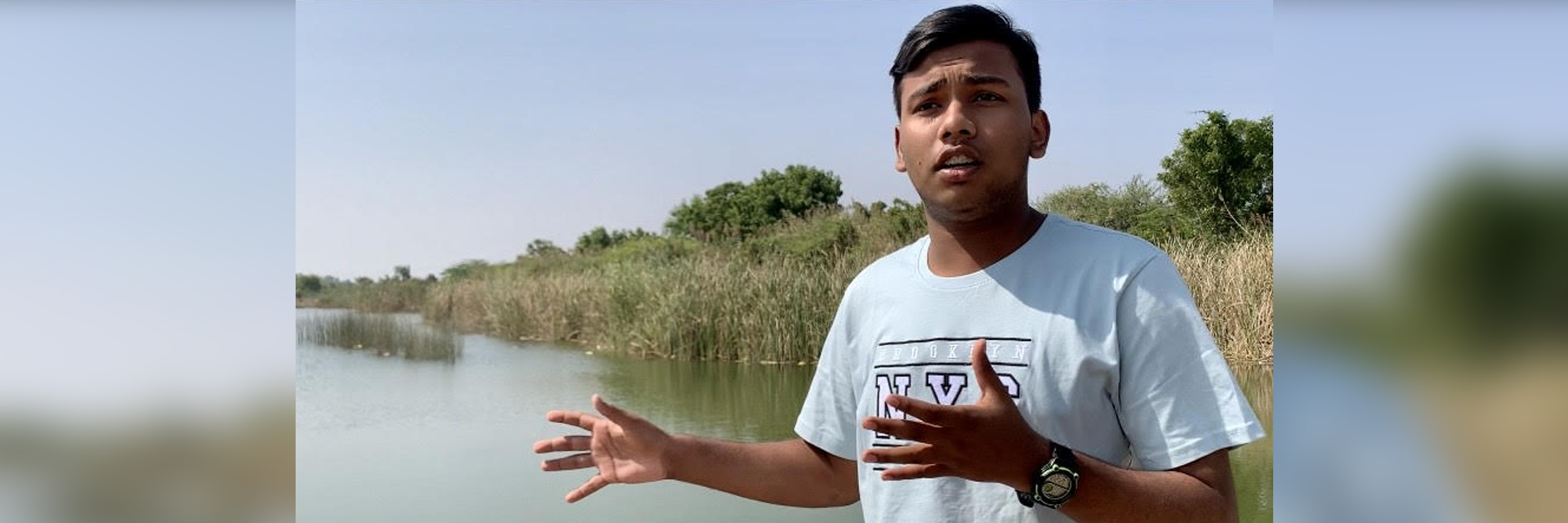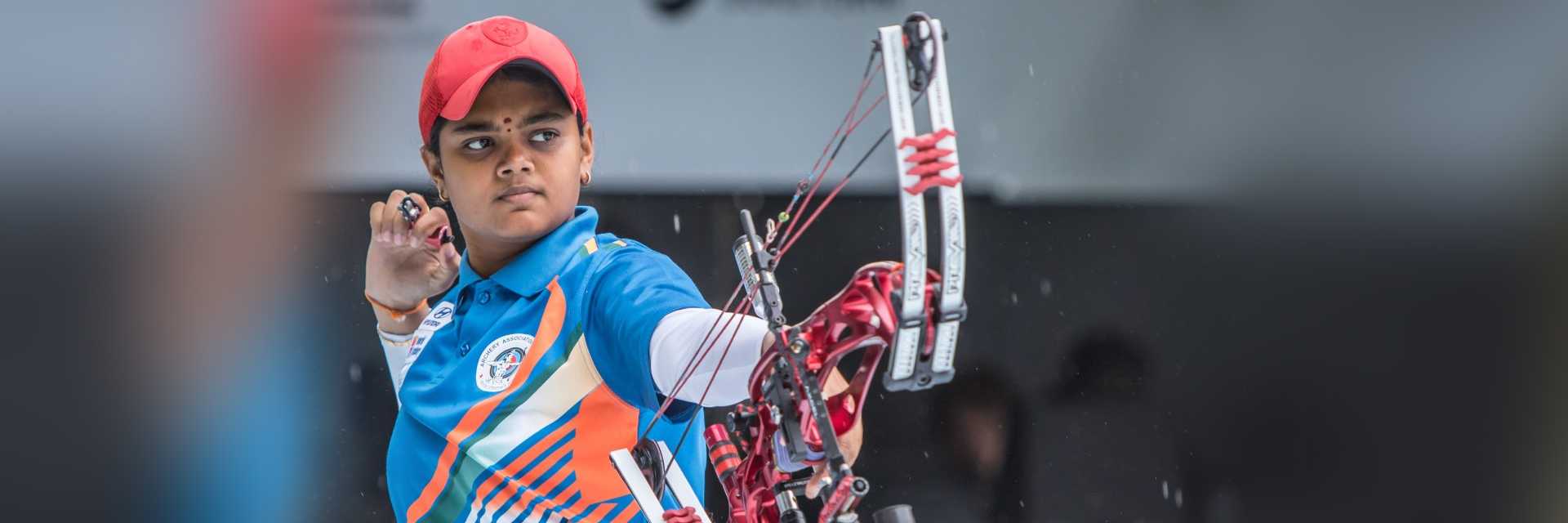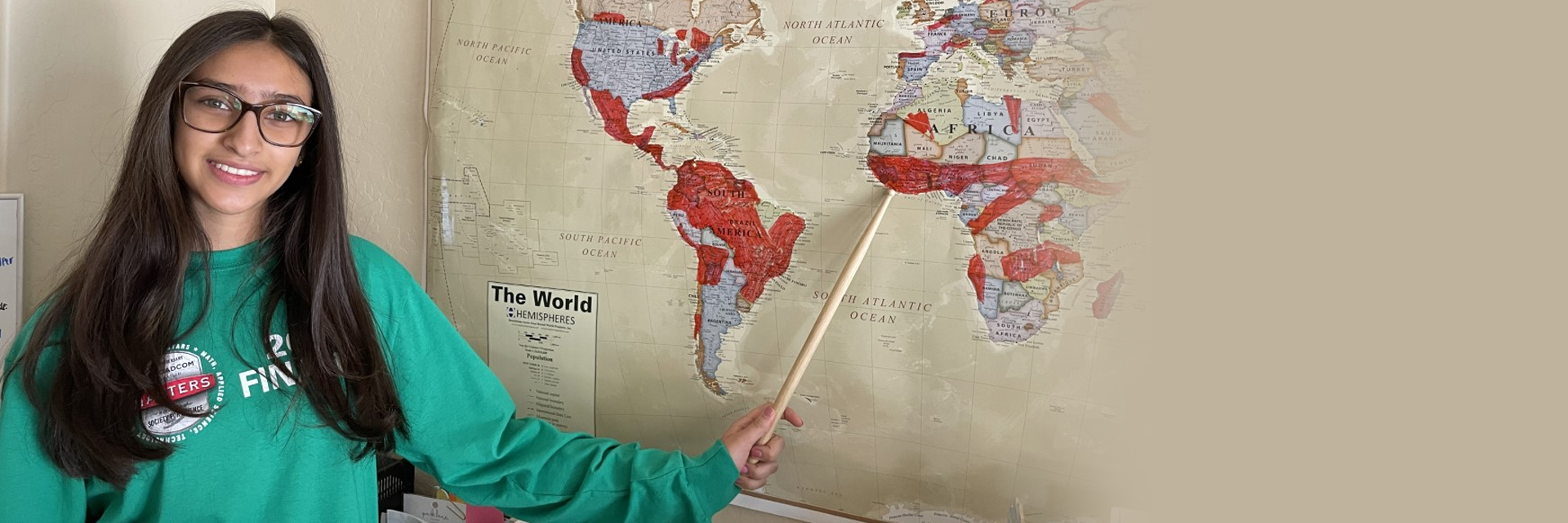(March 1, 2022) The sight of a gasping pilot whale washed ashore in Thailand in 2018 left a 12-year-old Varun Saikia heartbroken. “I followed the news, and found that it died of starvation as her belly was full of plastic waste. It shook me. I knew I had to come up with a solution to help protect marine life,” Varun tells Global Indian in an interview, of the whale that had consumed 80 plastic bags.
And he did. The 16-year-old innovated an AI-driven device Makara to clean polluted water bodies. It won him a special award at the Initiative for Research and Innovation in Science 2021. His prototype also got a nod from the Gujarat Innovation Council, with a grant of Rs 1,86,000 to create a bigger prototype, set to be launched this year.
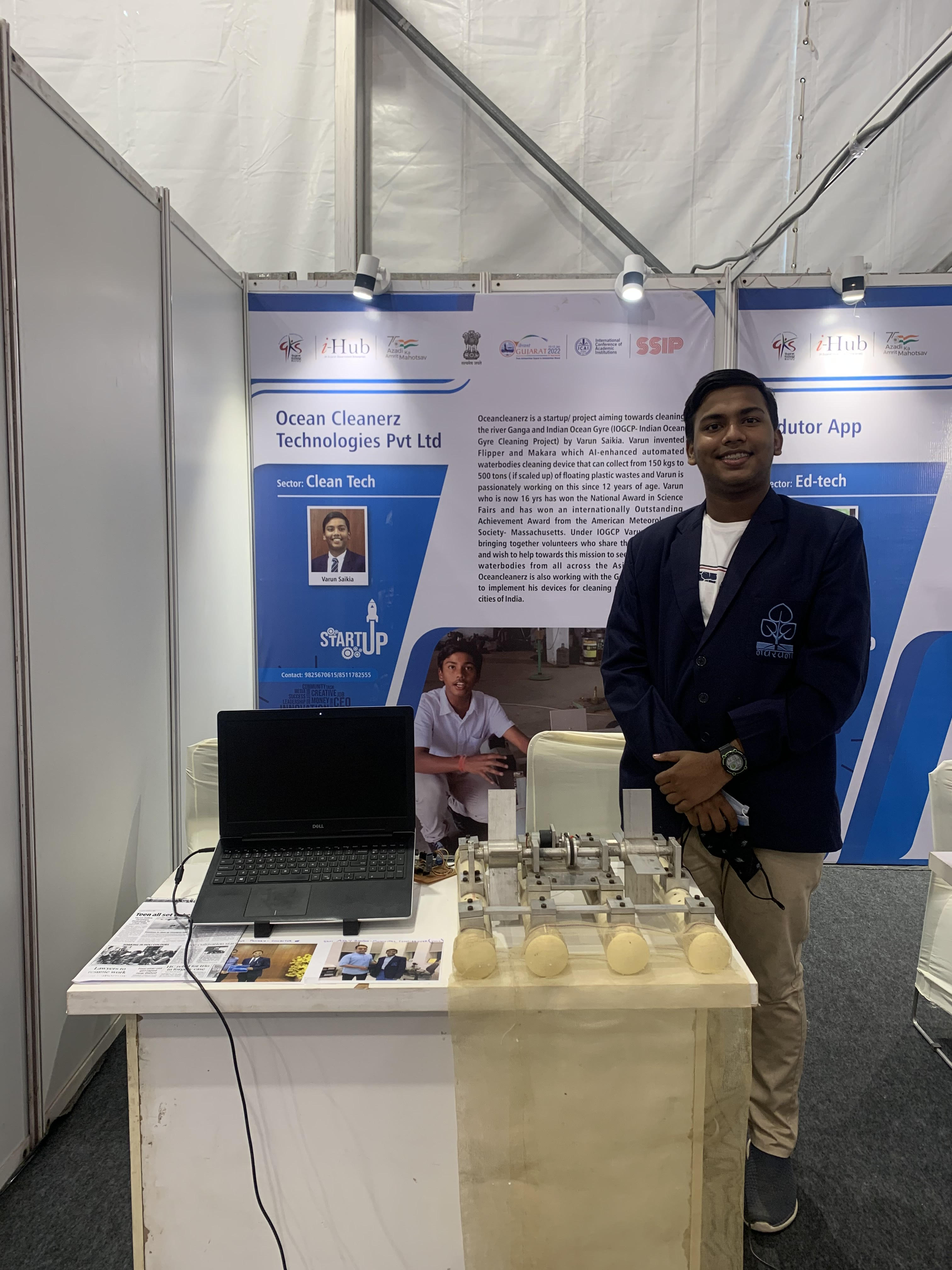
Varun Saikia with his AI device Makara
Understanding the workings of gadgets
Born in Vadodra in 2005 to parents who own an advertising agency, Varun loved dismantling toys, especially remote-control ones. This inquisitiveness to understand its functioning led the teenager to become an inventor and innovator at a young age. “I used to pick things easily available at home, and come up with new ideas,” says the boy who at the age of eight made a water harvesting system using plastic bottles and pipe. Cutter in hand, he was always pottering on inventive ideas. This often invited the fury of his mother. “She was concerned about my safety, but she also always supported me in my innovations,” smiles Varun.
At 12, things took a serious turn with the news of a pilot whale on the shores of Thailand. “After a few days, the whale succumbed. The incident nudged me to come up with a solution,” says the Navrachana School student.
How Makara came to life
The Class 11 student knew he had to get rid of plastic waste that was making many species of fish extinct. He designed a low-cost machine that helps clean water bodies. “After discussing the problem with my mom, she encouraged me to work on the prototype which took three months. Post several trials, I came up with Makara, a fabricated prototype using plastic bottles that worked on a battery, and could be operated by remote control,” reveals Varun who conducted 11 test runs in local ponds and collected 33 kg plastic waste.
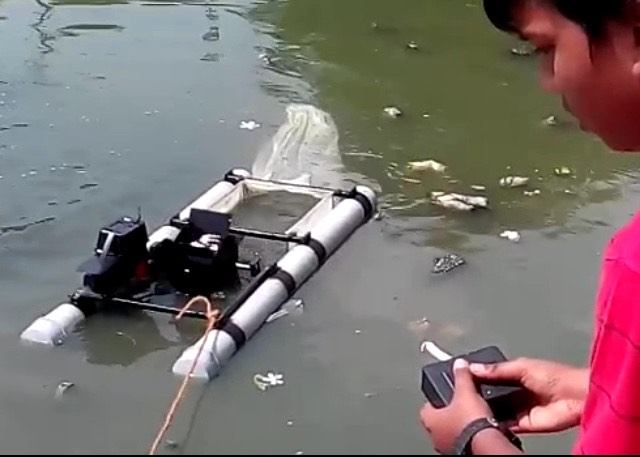

With each experiment and test run, Varun improvised the prototype. “Initially, I had added a basket at the tail of the prototype to gather waste. I soon realised that a lot of plastic waste is deeper. So I added a tail net that collected waste in a larger capacity,” adds Varun who pitched the idea to the Gujarat Innovation Council, and won a grant in December 2018.
In July 2019, Varun began working on the bigger model, Flipper, that’s 20 feet in length, fully automated, and it can fish out 150 kg waste in one swoop. The teenager claims the innovation doesn’t affect marine life as the ultrasonic waves transmitted from its sensors keep fishes at bay. “Fish don’t come to the surface. The tail net bin is only 10 inches deep, and can be customised up to 1.5 ft depending on the water bodies,” says the young innovator, adding that floating waste is later segregated on land.
This passion for protecting the environment led to the launch of his startup Ocean Cleanerz in 2021. “After working on Makara and Flipper, I realised the need for a company that focuses on finding a sustainable solution to environmental problems,” says the teenager.
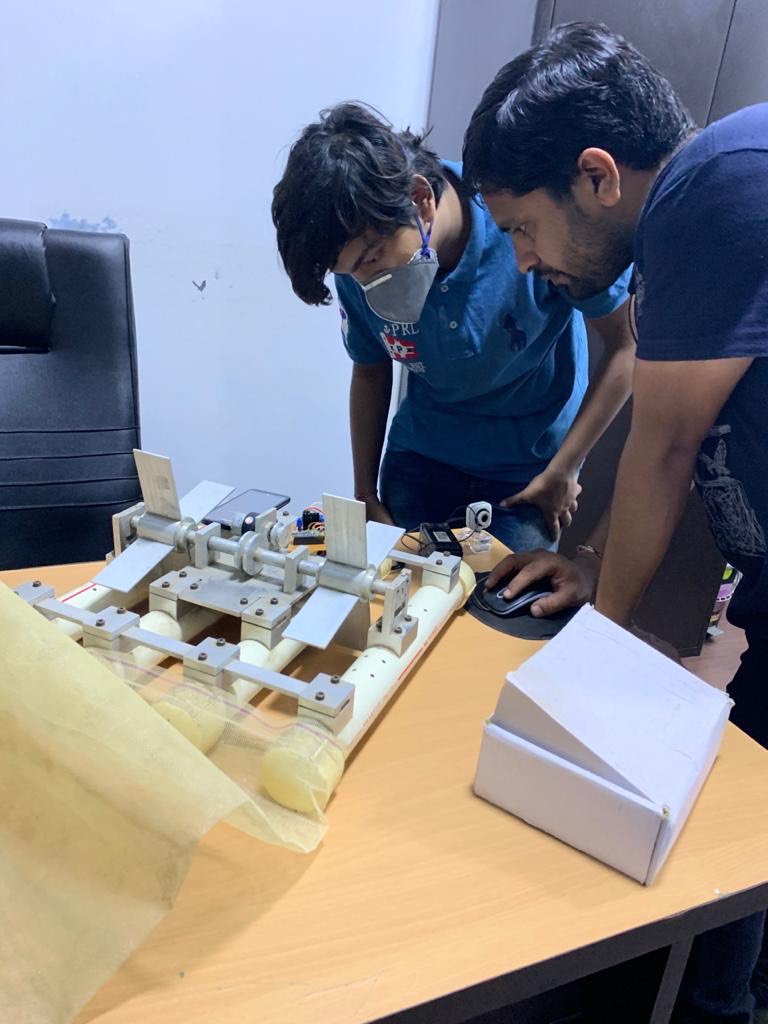

Varun Saikia working on Makara
Project Flipper bagged the IRIS 2021 award instituted by the American Meteorological Society, Massachusetts in the category of environmental engineering. “Because of Covid-19, the awards were held virtually. It feels great that my innovation is getting attention, and resonating with people,” adds the teen innovator.
Varun, who calls his mother Ruchira his mentor, has found a perfect support system in her. “She has always had faith in me. She funded my first prototype, that says a lot about her,” adds Varun, who is glad that his parents have been the wind beneath his wings. “I am grateful that they have allowed me to pursue my innovations,” says the boy who wants to study environmental engineering. “I want to get into MIT, and make a difference with my engineering,” adds Varun, who loves going on long walks with his dog.
Starting up as a teen
The teen innovator never misses a day to work on his startup, despite a tight study schedule. “I devote an hour each day to my work as I am passionate about it,” says Saikia who likes exploring tech websites and learning something new each day.
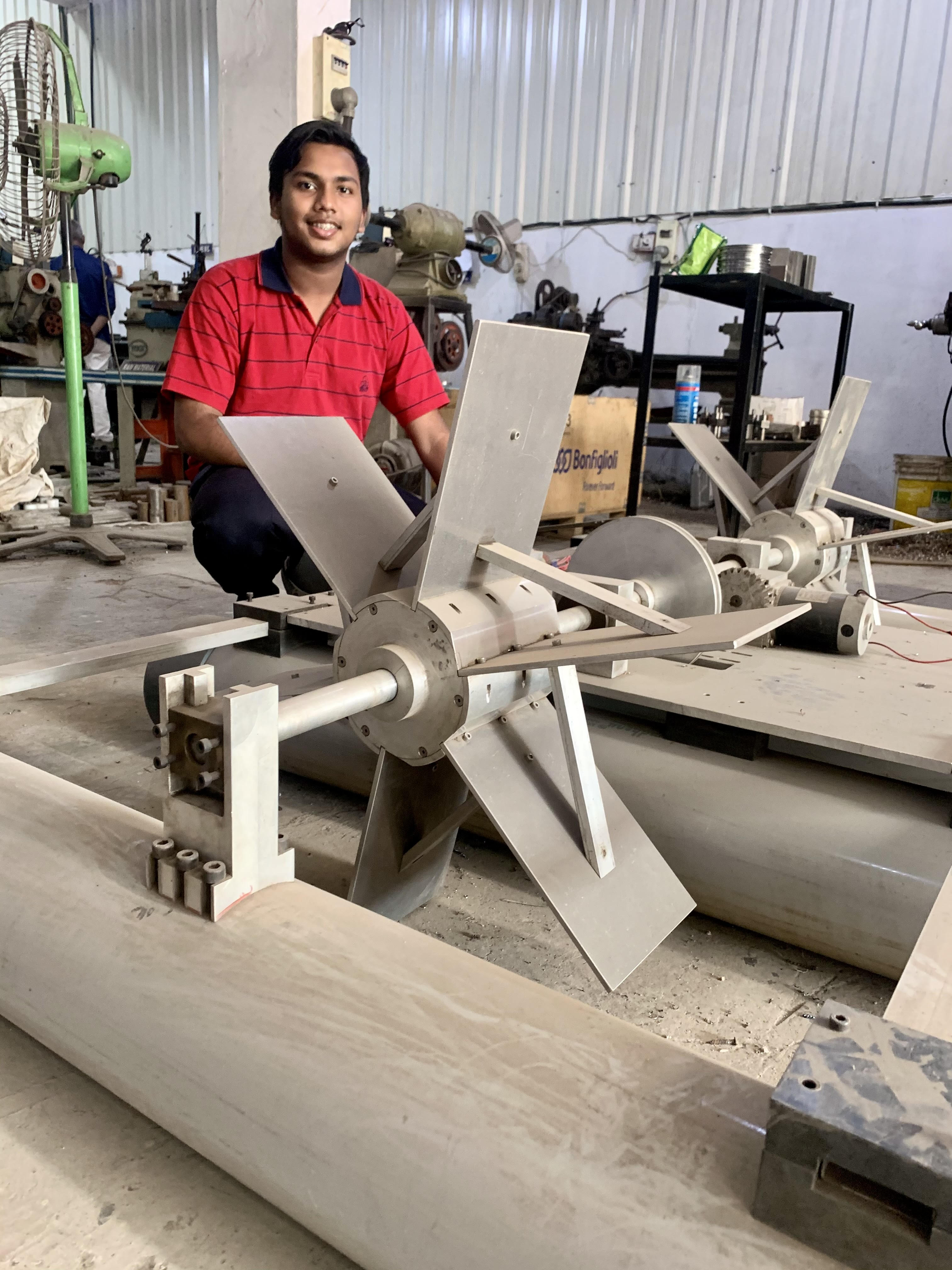

Varun Saikia working on Flipper
The boy who relentlessly follows up on his innovations, advises “never give up on any idea as someday it might materialise into something concrete.” He has been working on Flipper for two years, and is keen to launch it in the next few months. “I would want to use the device to clean lakes of every city and later help to clean river Ganga. Since my device is scalable, it can be used to clean the Indian Ocean too,” concludes the little visionary.
- Follow Varun Saikia on Linkedin

